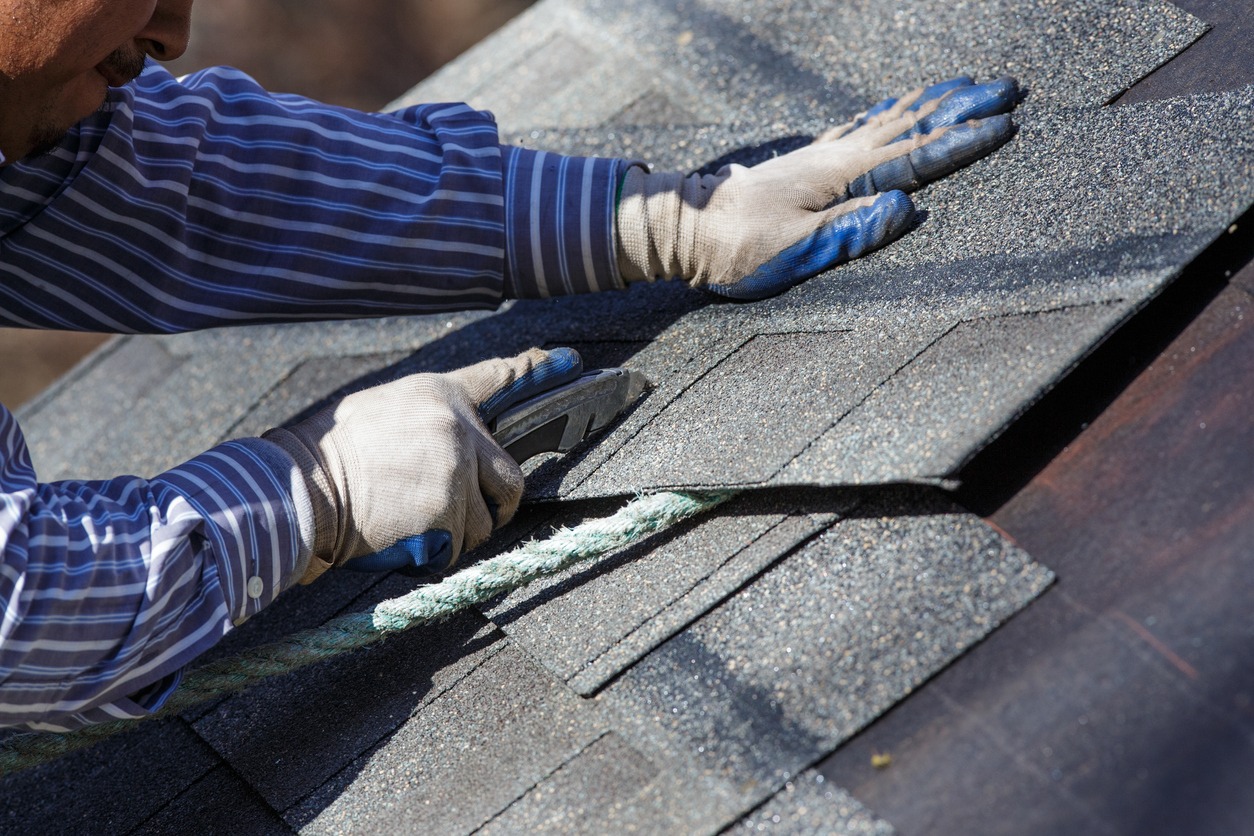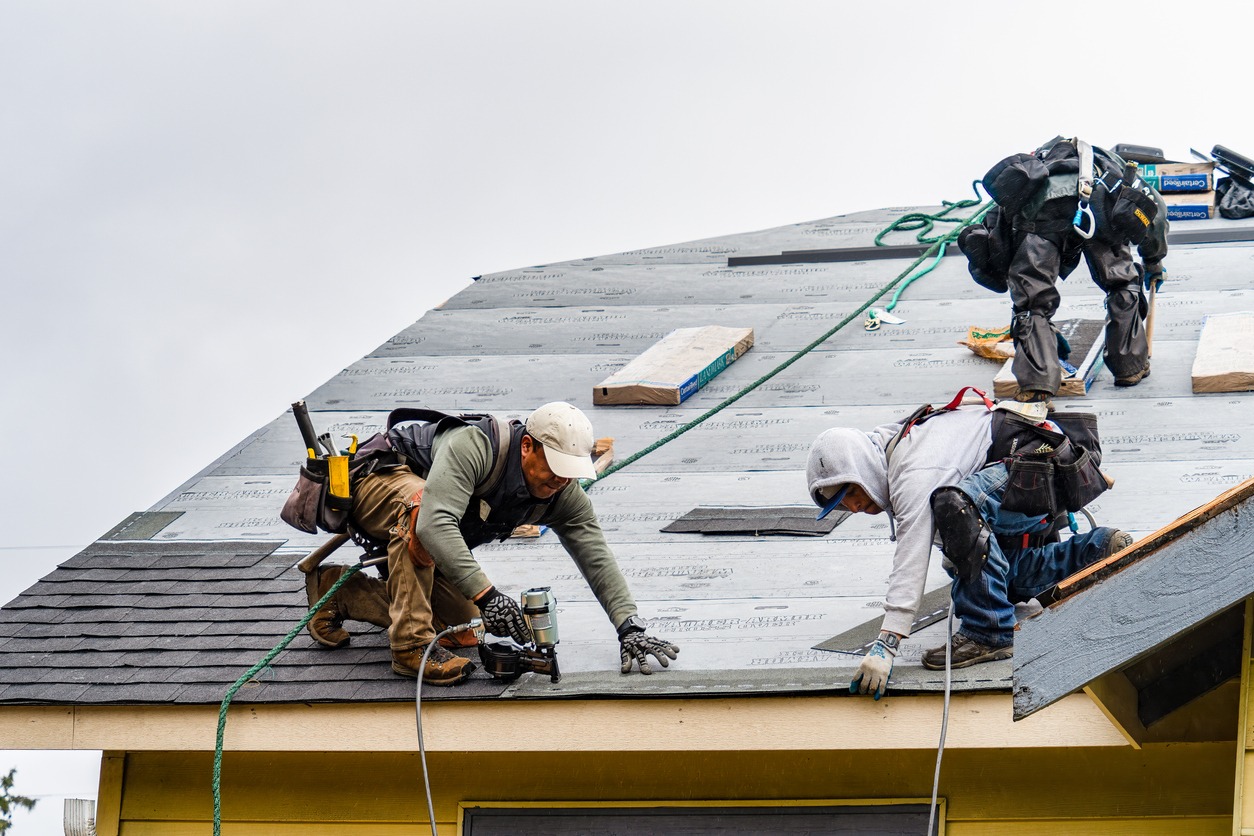When embarking on a roofing project, whether it’s a simple repair or a complete replacement, selecting the right contractor is important. Your roof is a significant investment and plays a crucial role in protecting your home, so it’s always better to ensure that you’re entrusting the task of installing and repairing roofs to a skilled and reliable professional. However, with so many roofing contractors in the market, distinguishing the best from the rest can be a daunting task. This is where knowing the right questions to ask comes into play.
In this article, we delve into the 20 detailed questions you should ask when hiring roofing contractors. These questions are designed to help you gauge the experience, credibility, and work ethic of potential contractors, ensuring that you make an informed decision.
1. How long have you been in the roofing business?
Experience is crucial in roofing. A contractor with many years in the business likely has the necessary expertise and understanding to handle various roofing challenges effectively. Experienced roofers are also more likely to provide high-quality work and reliable advice.
2. Are you licensed and insured for roofing work?
Ensuring the contractor is licensed confirms that they meet professional standards and regulatory requirements. Insurance is critical to protect you from liability in case of accidents or damage during the roofing project.
3. Can you provide references or examples of recent roofing projects?
References and examples of past work offer insights into the quality and reliability of their work. Positive feedback from recent customers indicates a track record of satisfaction.
It is important to note that a roofing contractor is different from a roofing company. To know more, check out our article, Is There A Difference Between A Roofing Company And Roofing Contractor?
4. What kinds of roofing materials do you specialize in?
Different roofing materials require different expertise. Whether you’re interested in shingles, tiles, metal, or flat roofing systems, it’s important to choose a contractor who specializes in your chosen material.
5. How do you handle project assessments and quotes?
A professional roofer should offer a thorough assessment of your roof before providing a detailed quote. This quote should include all costs, such as materials, labor, and disposal of old materials.
6. What is your process for a typical roofing project?
Understanding their process helps you know what to expect. This includes how they prepare the site, handle the proper removal and disposal of the old roof, install the new roof, and clean up afterward.
7. What is the estimated timeline for my roofing project?
Knowing the project’s duration helps in planning and setting expectations. It’s also important to discuss how they handle potential delays, especially due to weather.
8. How do you ensure the safety of your workers and my property?
Safety protocols are essential for protecting workers and your property. The contractor should follow industry safety standards and have measures in place to prevent property damage.
9. Do you offer a warranty on your work and the materials?
A warranty provides peace of mind and protection. It’s important to understand what is covered by the warranty, how long it lasts, and what voids it.
10. Who will be the main point of contact during the project?
Having a dedicated point of contact ensures effective communication. This person should keep you informed about progress and be available to answer any questions.
11. How do you handle unexpected issues or additional repairs?
Roofing projects can uncover unforeseen problems. A reliable contractor should communicate these issues promptly and provide clear options for addressing them.
12. What are your payment terms and conditions?
Discussing payment terms upfront avoids misunderstandings. Clarify the payment schedule, acceptable payment methods, and if a deposit is required.
13. Do you subcontract any part of the roofing project?
If the contractor uses subcontractors, it’s important to know how they ensure the quality and reliability of their work.
14. Can you help with obtaining the necessary permits?
Many roofing projects require permits. A professional contractor should manage the acquisition of all necessary permits and ensure that the project complies with local building codes. Here are a few of the most common permits that are needed for roofing projects:
- Building Permit – This is the most common permit required for roofing work. A building permit ensures that the roofing project complies with local building codes and imposed safety regulations. It often involves an inspection by a city or county official to verify that the work meets the required standards. The need for a building permit typically depends on the extent of the work; for example, complete roof replacements usually require a permit, while minor repairs might not.
- Zoning Permit – In some areas, especially in cities with strict zoning laws, a zoning permit may be required. This permit ensures that the roofing project complies with local zoning regulations. It’s particularly relevant if the roofing work involves structural changes that might affect the building’s footprint or height.
- Homeowners’ Association (HOA) Approval – While not a government-issued permit, approval from your HOA may be necessary if you live in a community governed by one. HOAs often have rules about the types of materials and colors that can be used to ensure consistency in the neighborhood’s appearance.
15. How do you approach ventilation and insulation in roofing?
Proper ventilation and insulation are crucial for the longevity of the roof and the energy efficiency of your home. The contractor should be knowledgeable about these aspects.
16. Do you provide a cleanup service after the project is completed?
Post-project cleanup is important for your convenience and safety. The contractor should include the removal of debris and cleaning of the site in their service.
17. How do you handle gutter work in relation to roofing?
Gutters and flashings are integral parts of a roofing system. The contractor should be skilled in assessing and addressing any issues with these components during the roofing project.
18. What steps do you take to ensure the quality of the finished roof?
Quality control measures such as inspections during and after installation are key for a durable and effective roof. Ask about their processes for maintaining high standards.
19. Can you provide eco-friendly or energy-efficient roofing options?
If you’re interested in sustainable roofing, it’s important to choose a contractor with experience in eco-friendly materials and energy-efficient roofing systems.
20. What are your policies on post-installation follow-up and addressing potential issues?
Understanding their approach to post-installation service, including how they handle any issues that arise after the project is completed, is crucial for long-term satisfaction.
These questions will help you evaluate roofing contractors comprehensively, ensuring you choose a qualified professional who meets your specific roofing needs.

